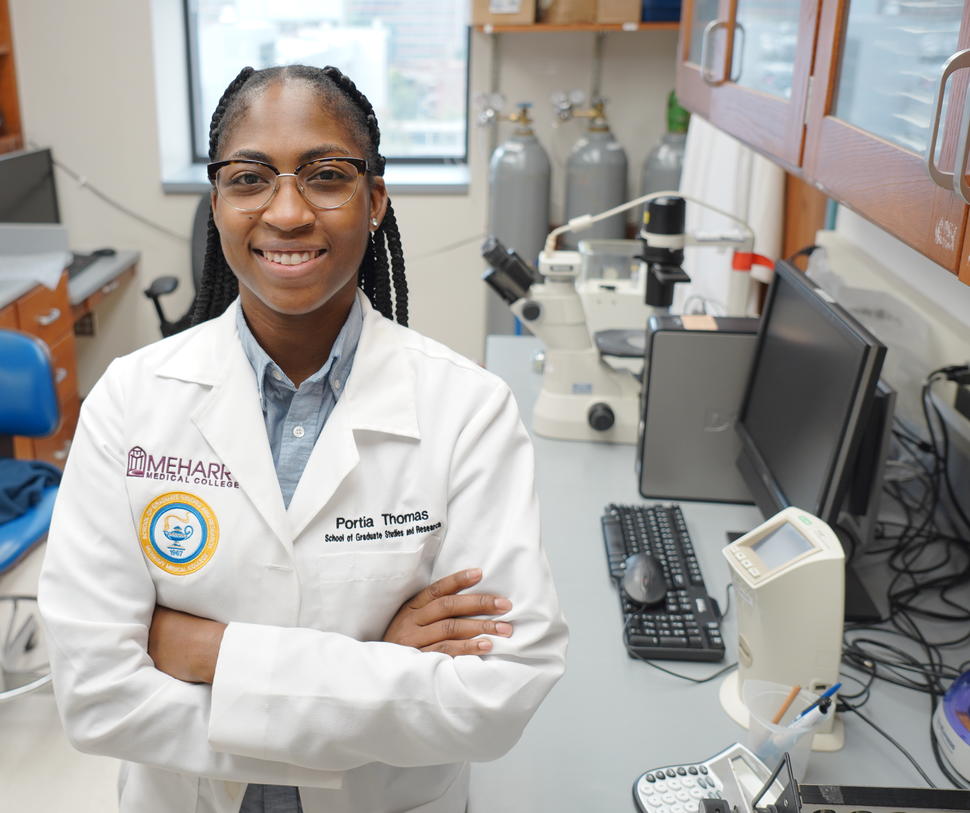Portia Thomas, an M.D./Ph.D. student and CSBC junior investigator at Meharry Medical College, loves working with children. Even though she is busy with medical school and her thesis research, she makes time to mentor and teach young students.
Based on this passion, Portia wants to be a pediatric oncologist and research therapies for pediatric brain tumors as a physician-scientist.
In this interview, she discusses her career journey and her current thesis research.
Why are you pursuing a career in pediatric oncology?
I experienced pediatric cancer within my own family. I had a 7-year-old cousin who died from a brain tumor. It was devastating to me at the time because we were very close, and I didn't fully understand everything that was happening. As I got older, I started to realize that maybe his death could have been prevented if he had received an earlier diagnosis.
I want to be able to help families as much as possible, so they don’t have to go through that same experience of losing a child to cancer.
What advice would you give to the next generation of scientists interested in studying cancer?
Dive into the field and familiarize yourself with various approaches as soon as you can!
If you're choosing to go into cancer research, you should make it a priority to learn computational techniques. I think that cancer systems biology is the new way forward and it's going to be integral to new discoveries in the field of cancer research.
With systems approaches, we'll start to gain a deeper knowledge of cancer processes that are very complex, like intracellular networks that have baffled us for decades. With the integration of experimental and computational approaches, we're getting closer and closer to finding successful treatments for cancer.
Can you describe your CSBC research?
I am performing research in Dr. Christine Lovly’s lab in the Vanderbilt Center for Cancer Systems Biology through the Meharry-Vanderbilt Alliance. The work is a collaboration with Lisa Coussens’ lab at Oregon Health and Sciences University.
Using a technology that they developed, I plan on studying the tumor immune microenvironment in small-cell lung cancer. This approach allows us to look at a wider breadth of immune cells than has ever been assessed before in patients’ tumors, which is critical to our understanding of why immune checkpoint blockade (a type of immunotherapy) hasn’t worked as well in patients who have small-cell lung cancer.
How will this research ultimately help cancer patients?
Even though immunotherapy is being used in the treatment of small-cell lung cancer, we don't really see patients benefiting from it. My lab is trying to check for the presence of immune cells to see if patients have a functional immune system in place for immunotherapy to work.
Reducing health disparities is also a huge goal for me. We plan on assessing the differences that we see in the immune system of Black patients who have small-cell lung cancer. We're trying to do some comparison studies to make sure that when we deliver therapies to patients, they can be equally effective in all populations.
